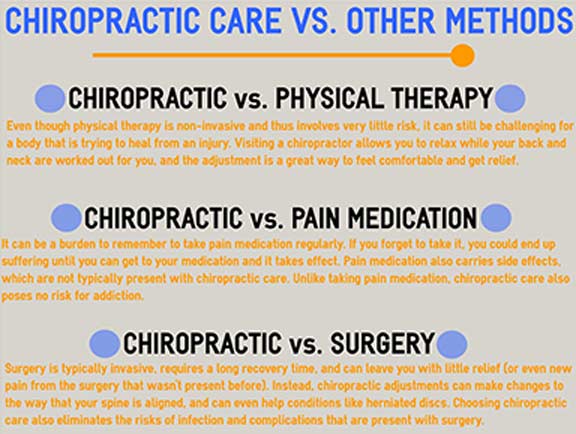Are Chiropractic Adjustments Compulsive? Separating Reality From Misconception
Are Chiropractic Adjustments Compulsive? Separating Reality From Misconception
Blog Article
Content By-Rode Stampe
You might have listened to that chiropractic care changes can lead to a habit forming dependency, yet that's a typical misconception. Lots of patients discover relief without developing any kind of form of addiction. It is necessary to understand real function of these adjustments and how they suit your total health and wellness technique. So, what exactly does the science claim concerning chiropractic care and your well-being? Allow's explore infant chiropractor .
Recognizing Chiropractic Adjustments and Their Objective
When you think of chiropractic changes, it's important to recognize their purpose and just how they work. These modifications intend to deal with misalignments in your back and joints, promoting much better alignment and movement. By using regulated force to certain areas, chiropractic specialists assist relieve discomfort, improve function, and improve your total health.
Chiropractic treatment concentrates on your body's capability to recover itself, emphasizing the link between the spine and the nerves. When your spine is straightened, it can decrease nerve interference, permitting your body to operate efficiently.
Routine modifications may additionally help stop future problems, keeping you active and pain-free. Eventually, chiropractic adjustments offer to support your wellness, boost wheelchair, and boost your quality of life.
Common Myths Regarding Dependency and Chiropractic Care
Many people hold mistaken beliefs about the connection between chiropractic treatment and dependency treatment. One typical misconception is that chiropractic care changes develop an addiction-like dependence. In chiropractor open on saturday , lots of people locate remedy for discomfort and discomfort, but this doesn't mean they establish a psychological or physical addiction.
One more myth is that chiropractics physician are simply trying to keep you returning for more adjustments. Most chiropractors prioritize your wellness and aim for long-lasting health as opposed to constant brows through.
Additionally, some believe chiropractic treatment can replace conventional addiction therapies, but it needs to enhance, not substitute, evidence-based treatments. Recognizing these myths can aid you make notified selections concerning your wellness and health without dropping prey to false information.
The Scientific Research Behind Chiropractic Care Adjustments and Individual Experience
While some may examine the efficacy of chiropractic care changes, a growing body of study supports their duty in relieving discomfort and boosting overall function.
Research studies indicate that spinal manipulation can reduce pain from problems like lower pain in the back, stress headaches, and neck pain. When you go through chiropractic care, the adjustments intend to recover correct placement, boosting your body's all-natural healing capacities.
Many people report increased wheelchair and a higher sense of well-being after therapy. Additionally, the therapeutic relationship you build with your chiropractic doctor can boost your experience, as they provide individualized care customized to your needs.
This combination of clinical backing and positive individual experiences aids clarify why chiropractic care modifications work for numerous people looking for relief.
Conclusion
To conclude, chiropractic care changes aren't addicting; they're created to enhance your well-being and advertise proactive health maintenance. By disproving the myths bordering dependence, it's clear that these treatments can supply considerable relief without producing a cycle of dependency. Welcoming chiropractic care as a complementary method to standard therapies can cause better health outcomes. So, if you're considering adjustments, felt confident that they're about improving your quality of life, not producing a dependence.
